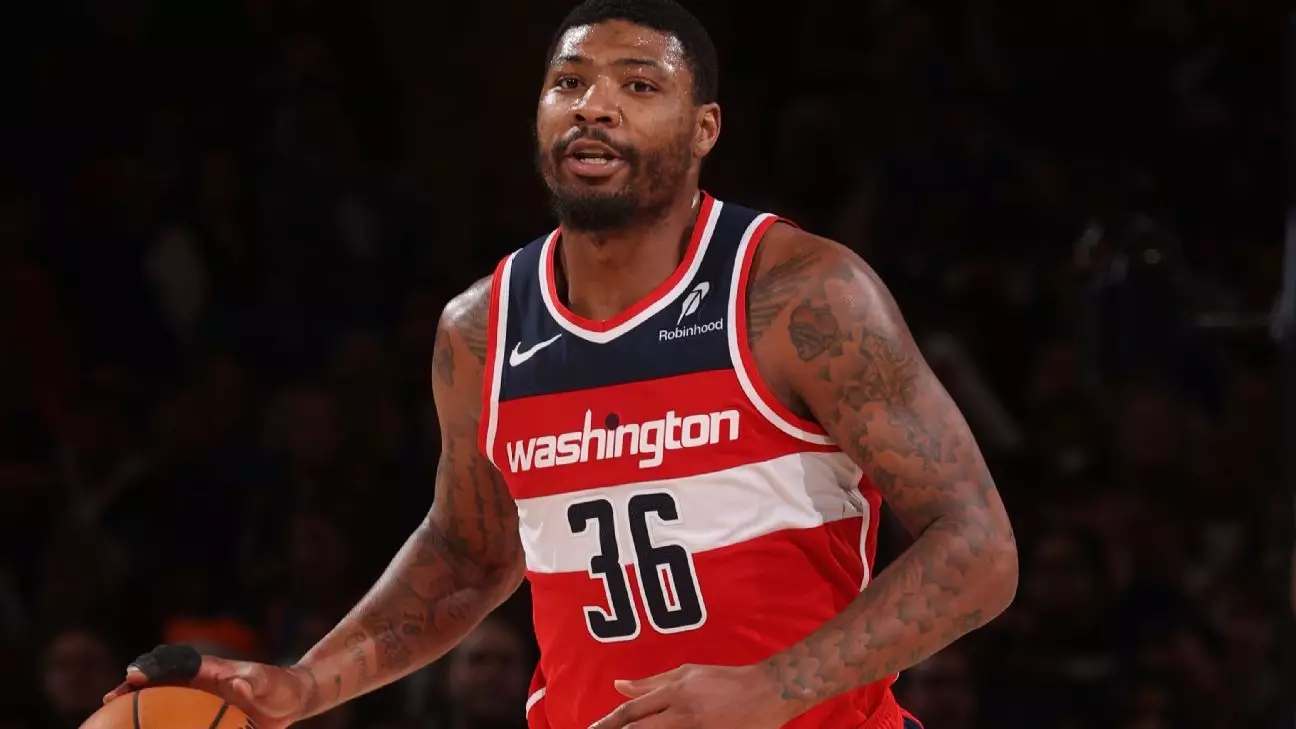In recent discussions about the intersection of sports fandom and player conduct, a notable incident involving Marcus Smart during a game at TD Garden illustrates how the fervor of fans can occasionally spiral into unacceptable territory. While the NBA encourages passionate engagement from its supporters, sporting venues should not become arenas for harassment. During a lackluster match where Boston Celtics fans were celebrating the home team’s overwhelming performance against the Washington Wizards, it became evident that the line between spirited encouragement and abusive disparagement was crossed. Smart’s sentiments encapsulate a growing concern in professional sports: how far can fans go in voicing their opinions without crossing a vital line of decency?
Smart eloquently stated, “He just crossed the line. We all know, I don’t do line crossing.” This reinforces that while players like Smart thrive in competitive atmospheres—drawing on the energy of supportive fans—the reality is that such support must be rooted in respect and sportsmanship. It’s a delicate balance, and when it tips, it doesn’t just reflect poorly on that individual fan; it tarnishes the collective reputation of an energized fanbase that is meant to bolster athletes, not tear them down.
Trading Places: The Emotional Weight of Change
The emotional backdrop of Smart’s return to Boston is also an essential part of this narrative. Having spent nine formative years with the Celtics, his transition to the Wizards not only speaks to the business side of basketball but also resonates with personal loss and nostalgia. The love-hate relationship between athletes and their fans is often spotlighted, but Smart’s heartfelt reflection—“The love is always there. From both sides; myself and the fans, the city. It’s definitely emotional coming back”—reminds us of the human element in sports.
Here lies a facet often overlooked: the psychological toll that transitions can take on players. Smart wasn’t just roaming the court in Boston; he was in a setting that molded him from a fledgling talent into a key contributor to a championship contending team. Now, as he sits on the opposite bench, just a season removed from that journey, the dichotomy of belonging and separation must weigh heavily on him. The chants from the stands, “We want Marcus!” underscore that while players may change uniforms, the bonds forged on the court remain formidable.
Implications for Sports Culture: A Call for Accountability
The incident raises broader questions about the responsibility of fans in the realm of sports culture. As supporters, they are integral to the vibrant tapestry of athletics that captures our imagination. However, when personal feelings turn into destructive heckling, it becomes imperative for us to re-evaluate our roles as fans. Accountability knows no bounds—it’s time to consider the power of our words and their impact.
What does it say about our society when a player returning to his old stomping ground can become the recipient of hostility rather than an outpouring of gratitude? The excitement of the game doesn’t excuse behavior that undermines the very essence of sportsmanship. Teams must commit to fostering environments that prioritize respect for their players and their opponents, recognizing that sports are a reflection of broader societal norms.
In navigating these complexities, franchises should take a proactive approach, increasing dialogues about appropriate fan conduct within arenas. Promoting a culture of mutual respect is key. Smart’s encounter reminds us that lines aren’t just drawn on a court; they exist in the actions of those who fill the seats as well.
The Shared Burden: Evolving the Athletic Experience
In wrapping up this discussion about Marcus Smart’s strong response to an unruly fan, it’s crucial to remember that these occurrences reflect a shared responsibility across the board. Coaches, players, and fans must come together to redefine the atmosphere of sporting events—transforming arenas from battlegrounds of verbal sparring to stages celebrating camaraderie and athletic excellence.
Marcus Smart’s journey, laden with both achievements and emotional farewells, showcases the triumphs and tribulations embedded in professional sports. Yet, through all these complexities, it’s essential to recognize that the admiration for athletes should never give way to contempt. Sports remain, at their core, a celebration of human excellence—a principle that should never be compromised by the actions of a few.

